Expand your coaching skills with Panathlon
Students on sport and physical education courses wishing to expand their coaching skills by working with disabled children now have the chance to do so.
The Panathlon Foundation, a charity that enables over 10,000 young disabled people a year to play competitive sport that they are often denied in mainstream schools, has started working with universities and colleges across England to enhance both the charity’s reach and the education sector’s involvement in disability sports provision.
One such successful partnership is between the Foundation and St Mary’s University in Twickenham. For the past three years the University’s Physical and Sport Education students have volunteered as leaders and officials at the West London Panathlon Challenge multi-sports competition at the University Sports Village.
Panathlon’s Chief Operating Officer, Tony Waymouth, said: “This project has been hugely rewarding for both Panathlon and St Mary’s, giving their students valuable experience of working with children with disabilities and SEN, and enabling us as a charity to benefit from their help at our events. We’re now keen to expand these mutual benefits to other students on sports and physical education courses around the country.”
Students receive a three-hour training course one month prior to the competition in five disability sports – boccia, new-age kurling, polybat, table cricket and adapted athletics. The students specialise in one of these sports and then officiate in that sport at the competition.
Already in this academic year St Mary’s students have undertaken Panathlon-adapted sport training and they will again be volunteering as team leaders at Panathlon competitions.
“Students receive a three-hour training course one month prior to the competition in five disability sports – boccia, new-age kurling, polybat, table cricket and adapted athletics.”
The students will also be given the opportunity to undertake their placement hours within Panathlon-linked schools to help support and deliver high-quality adapted PE/sport. In addition, St Mary’s will be hosting some Panathlon-linked schools for PE sessions.
Alexandra Monk, lecturer on the University’s Physical and Sport Education programme, said: “St Mary’s University and Panathlon have been working together to create a mutually beneficial relationship, which is evolving over time.
“Students have thoroughly enjoyed the invaluable experience of working with young people with a range of disabilities and experienced teachers/coaches.
“Adapted PE/sport coaching/teaching is a strong pathway of interest for PSE students, with many students electing to take these modules to further expand their skills as future PGCE and coaching students.”
The Foundation’s programmes are a perfect fit for the University’s philosophy and their increasing involvement with young severely disabled people.
Chris James, who is involved in training for the Foundation, acknowledges that some support staff, teachers and students can lack confidence and “feel a bit lost” when faced with an impaired athlete, child or disabled sporting environment. But, he says, as with any type of coaching, the first step is to get to know each athlete individually.
“It’s really important to get to know and understand the student you are working with,” he adds. “Do they have the ability to throw? Are they able to understand instructions? Do they struggle with confidence? Do they enjoy sport? Do they need lots of praise or can it be more subtle?”
“Students have thoroughly enjoyed the invaluable experience of working with young people with a range of disabilities and experienced teachers/coaches.
Whilst researching different types of impairments may help, there’s a danger coaches get hung up on ‘labels’ (e.g. cerebral palsy, ADHD), but Chris points out that it’s best to see through the label and discover the person, as ultimately they have the best knowledge about what their body can do.
“I always speak to the teachers beforehand to gauge the kind of level I need to pitch a session and upon meeting the students just introduce yourself and spend time with them,” Chris says.
“If you stand back and don’t engage enough, then you can’t begin to build a rapport. Lots of praise and positive encouragement is essential, but you’ll need to make quick judgement calls which aren’t always possible to get right.”
The Panathlon Foundation has a variety of programmes across a range of ages and classifications, and colleges and universities have been involved in a variety of training scenarios and event days.
For further information, please contact Tony Waymouth at the Panathlon Foundation on 07807 984103.

